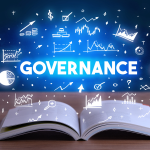Top Governance Trends to Watch in 2025
The governance landscape is evolving rapidly as organizations navigate increased regulatory pressures, stakeholder demands, and a digitalized world. Staying informed of the latest trends is essential for leaders aiming to foster transparency, accountability, and sustainable growth. Here are the top governance trends to watch in 2025, each shaping how companies operate and make decisions in an increasingly complex environment.
1. ESG Integration as a Core Governance Component
Environmental, Social, and Governance (ESG) considerations are no longer optional. In 2025, organizations are embedding ESG metrics directly into their governance frameworks. This trend reflects an increasing focus on sustainable business practices, as stakeholders—from investors to customers—prioritize companies committed to environmental and social responsibility.
Key Takeaways:
- ESG metrics are influencing board-level decisions and risk assessments.
- Transparent ESG reporting is crucial to build trust with stakeholders.
- Companies are setting specific, measurable ESG goals as part of their long-term strategies.
2. Data-Driven Decision Making and AI Analytics
Governance is increasingly guided by data and advanced analytics. AI-powered tools analyze vast amounts of data to uncover insights, improve decision accuracy, and predict risks. In 2025, board members and executives are relying more on data-driven insights to shape policies, identify potential governance issues, and respond proactively.
Key Takeaways:
- AI analytics are helping boards identify emerging risks and opportunities faster.
- Data-driven insights support compliance by detecting anomalies and patterns in real-time.
- Advanced analytics improve forecasting, enabling proactive governance.
3. Enhanced Cybersecurity Governance
With the rise in cyber threats, cybersecurity governance is a top priority for 2025. Boards are more involved than ever in setting cybersecurity policies, ensuring compliance with regulations, and allocating resources for robust protection measures. Enhanced cybersecurity governance protects sensitive data and strengthens stakeholder trust.
Key Takeaways:
- Cybersecurity governance is central to risk management and data protection.
- Boards are prioritizing training and resources to mitigate cyber risks.
- Compliance with evolving data protection regulations is critical to avoid legal liabilities.
4. Diversity, Equity, and Inclusion (DEI) as Governance Standards
DEI has become a focal point in governance, reflecting companies’ commitments to inclusive and diverse leadership. In 2025, organizations are setting formal DEI goals and monitoring progress as part of their governance framework. Inclusive governance attracts talent, promotes innovation, and aligns with stakeholder values.
Key Takeaways:
- Diverse leadership teams enhance creativity and decision-making.
- Transparent DEI metrics and progress tracking build accountability.
- DEI-focused governance aligns organizations with evolving social standards.
5. Regulatory Compliance and Transparency
Regulatory demands are intensifying globally, and organizations are under pressure to demonstrate transparency and accountability. Governance frameworks in 2025 are evolving to meet these heightened expectations, requiring streamlined processes and clear communication of compliance efforts.
Key Takeaways:
- Automation in compliance processes reduces errors and increases efficiency.
- Transparent reporting on governance practices builds trust with stakeholders.
- Staying informed on regulatory changes is crucial to prevent potential risks.
6. Climate-Related Financial Disclosures and Risk Management
As climate change continues to impact global economies, climate-related financial disclosures are becoming essential to governance. In 2025, companies are required to disclose how climate risks impact their financial performance and long-term viability, ensuring boards actively assess environmental risks and opportunities.
Key Takeaways:
- Climate disclosures align with ESG goals, contributing to sustainable growth.
- Assessing climate risks helps organizations mitigate potential financial impacts.
- Transparent climate disclosures enhance stakeholder confidence.
7. Stakeholder-Centric Governance
Today’s stakeholders—including investors, customers, employees, and communities—demand accountability and transparency from organizations. Governance frameworks in 2025 prioritize the interests of a broader range of stakeholders, balancing financial performance with social responsibility.
Key Takeaways:
- Stakeholder input is increasingly influencing board decisions and company policies.
- Balancing shareholder value with stakeholder impact strengthens brand reputation.
- Effective stakeholder governance builds long-term trust and loyalty.
8. Agile Governance Models
Traditional governance structures are evolving to become more agile, allowing organizations to respond quickly to emerging challenges and opportunities. In 2025, agile governance models empower organizations to make timely decisions and adjust strategies based on real-time feedback.
Key Takeaways:
- Agile governance promotes flexibility in decision-making and strategy shifts.
- Agile boards adapt faster to market changes, enhancing resilience.
- Data and feedback loops inform decisions, enabling continuous improvement.
9. Remote and Hybrid Work Governance Policies
As hybrid work environments become the norm, organizations are developing governance policies tailored to remote operations. In 2025, governance frameworks address remote employee engagement, security, compliance, and productivity to ensure cohesive and effective work cultures.
Key Takeaways:
- Remote governance policies clarify expectations and enhance productivity.
- Cybersecurity and data privacy are integral to remote work governance.
- Flexible work policies attract diverse talent and align with employee expectations.
10. Boardroom Technology and Digital Transformation
Digital transformation is revolutionizing governance, with technology streamlining everything from decision-making to reporting. In 2025, boards are leveraging advanced digital tools for efficient governance practices, including virtual meetings, digital reporting, and secure document sharing.
Key Takeaways:
- Digital tools enable real-time collaboration and effective remote governance.
- Virtual meetings and secure document sharing streamline board operations.
- Technology-driven governance enhances transparency and accelerates decision-making.
Why Choose Governancepedia?
In an era of rapid change, navigating governance complexities is more challenging than ever. Governancepedia provides a wealth of resources, insights, and practical tools to help organizations stay ahead of evolving trends. Our platform covers the latest in governance practices, compliance updates, and expert advice tailored to diverse industries.
With articles, case studies, and guides, Governancepedia supports leaders, board members, and governance professionals in building resilient, transparent, and accountable organizations. Whether you’re implementing ESG strategies, improving cybersecurity, or adapting to new regulations, Governancepedia is your go-to resource for effective governance.
Ready to strengthen your governance framework for 2025? Discover more with Governancepedia and stay informed on the trends shaping the future of governance.



